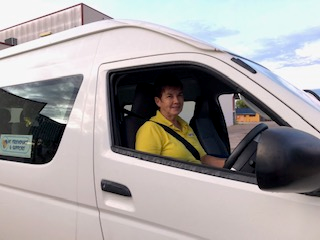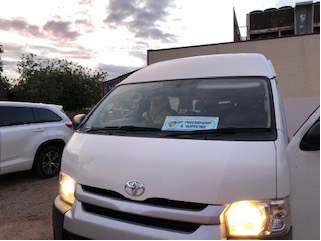Foundation for Rural & Regional Renewal (FRRR)
More flexible support needed to ensure sustainable, vibrant and empowered communities
FRRR is calling for individuals and organisations to help meet the unmet needs of remote, rural and regional communities, which continue to grow despite FRRR distributing a record $22.5 million in grants in 2023 financial year (FY23).
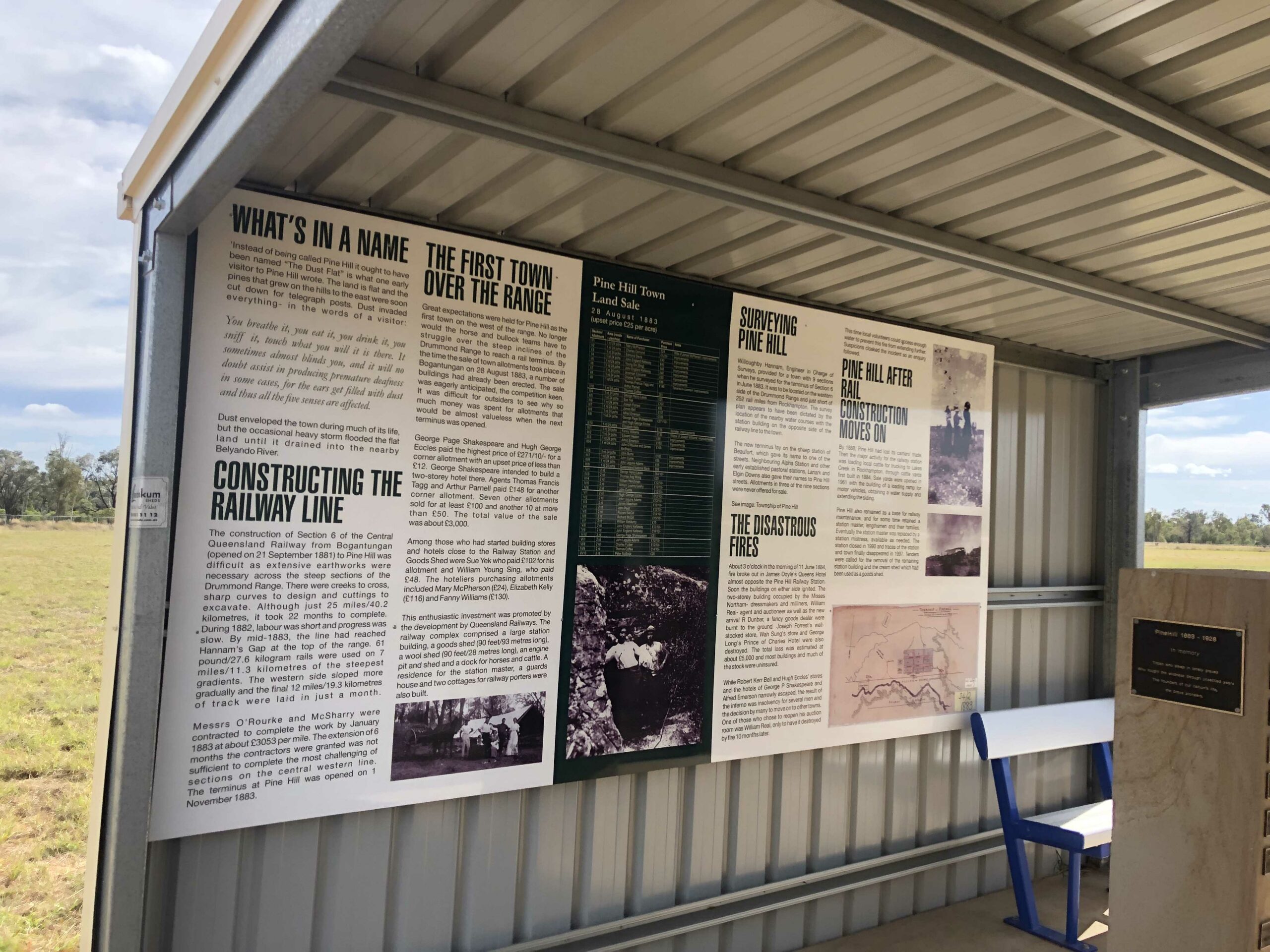
In FY23, FRRR’s flagship program, Strengthening Rural Communities, awarded more than $3.7 million via 466 small grants, valued at $10,000 or less, that directly benefited remote, rural and regional communities across Australia. The total value of those projects was more than $15.1 million, showing a remarkable leverage of a relatively small investment.
But this is only half the story. In FY23, for nearly every 10 projects that received a small grant, one missed out. In the last round of this program alone, there were 85 funding-ready projects that FRRR couldn’t support because it didn’t have enough money.
Natalie Egleton, FRRR’s CEO, says that FRRR’s small grants empower people in remote, rural and regional Australia to create communities that are vibrant and sustainable places to live and work, for the long-term.
“Rural people want to see their communities thrive. They want to be able to support those doing it tough or with special needs, like older residents; enhance community facilities to respond to the changing climate; provide access to music and cultural experiences for younger people; host events that bring a remote community together to celebrate what makes it unique or to recover after difficult times, just to name a few.
“But every small grants round we offer is oversubscribed, meaning with few alternative funding options, many community projects are left unfunded and critical needs are left unmet.
“It’s not just the dollars that are missed. Groups also say that FRRR’s funding has helped them to build capacity and confidence in their ability to test, learn and develop future other project ideas.
“Small grants help to bridge these gaps and make a lasting difference to remote, rural and regional Australia. By donating to FRRR, you help remote, rural and regional groups – many of whom can’t access funding elsewhere – to create vibrant, sustainable and empowered communities for the long-term,” Ms Egleton explains.
For example, previous small grant recipient, Alpha District Tourism & Development Association, in Queensland, explains, “FRRR has allowed us to achieve something that would have taken us years of fundraising for. Being a very small town fundraising is difficult due to the number of other small clubs and the small population. FRRR Grants are vital to help small communities.”
In Donald, Victoria, the St Arnaud Neighbourhood House used a small grant to improve social participation and the health and wellbeing of aged care residents, by getting local volunteers to record the resident’s life stories. Beyond the monetary value of the grant, the impact of this project was felt deeply throughout the community.
As the organisation shared with FRRR, “We believe this project created a community with a stronger social fabric, where young people were able to gain insights into the lives of those who came before them, and where the residents felt appreciated and respected, and that their life story was being honoured. We were most proud of the effect this project had upon the residents, many of whom were feeling isolated and forgotten. By demonstrating to them that they and their history still had meaning and importance, they felt a connection to the community and to the young people involved in the project.”
Meanwhile, in Morawa, Western Australia, the local playgroup was able to grow educational enrichment opportunities for 0-5 year olds by creating a shady nature play space. with the support of an FRRR small grant. In their project acquittal, Playgroup WA wrote that, “By completing this project it shows that despite being a small, low socio-economic town we can make life better for ourselves. We deserve nice facilities and can create them with the help of organisations like FRRR.”
It’s not just community groups that attest to the critical role of FRRR small grants. Natalie Devlin, Chief Experience Officer at Charter Hall, explains, “Having worked with FRRR since 2020, we have seen first-hand the difference they can make through their local understanding, and connection to grassroots organisations that often can’t access support otherwise.”
To enable FRRR to award more small grants, donate at: here. Contributions of $2 or more are tax deductible.
Find out more about the impact of small grants at: frrr.org.au/small-grants.
In an agricultural community, it is not uncommon to have a male-dominated population. However in and around Glen Innes, NSW this isn’t the case. More than half of the Glen Innes population is female. But local leadership and committee membership didn’t reflect that balance.
The Glen Innes Natural Resources Advisory Committee (GLENRAC) is dedicated to creating opportunities for land owners and the community to take an active role in managing and maintaining the natural resources of the region.
GLENRAC identified the need to improve governance skills and gender diversity within community groups and organisations to satisfy government and funding bodies.
To address this issue, GLENRAC used a $5,000 grant from FRRR’s Small Grants for Rural Communities grant program, funded in collaboration with Australia Post, to deliver a project aimed at building skills and capacity to engage with community groups in a meaningful way.
The project included three workshops over two days, targeting all members of the community and focusing on increasing knowledge of governance and leadership. During the workshops, community members engaged with experienced and professional facilitators. Participants were given the opportunity to build on their existing networks and increase their connections within the community.
GLENRAC hopes that following these workshops, women in the community will feel more confident and empowered to get involved with local committees with the skills and knowledge acquired from the events.
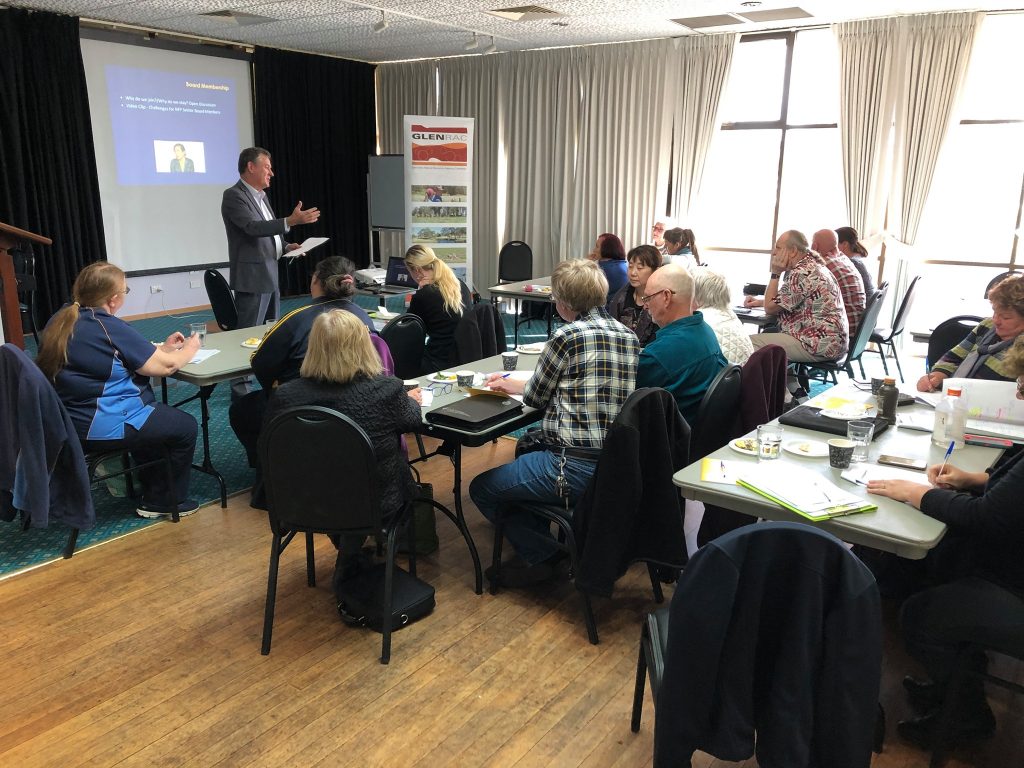
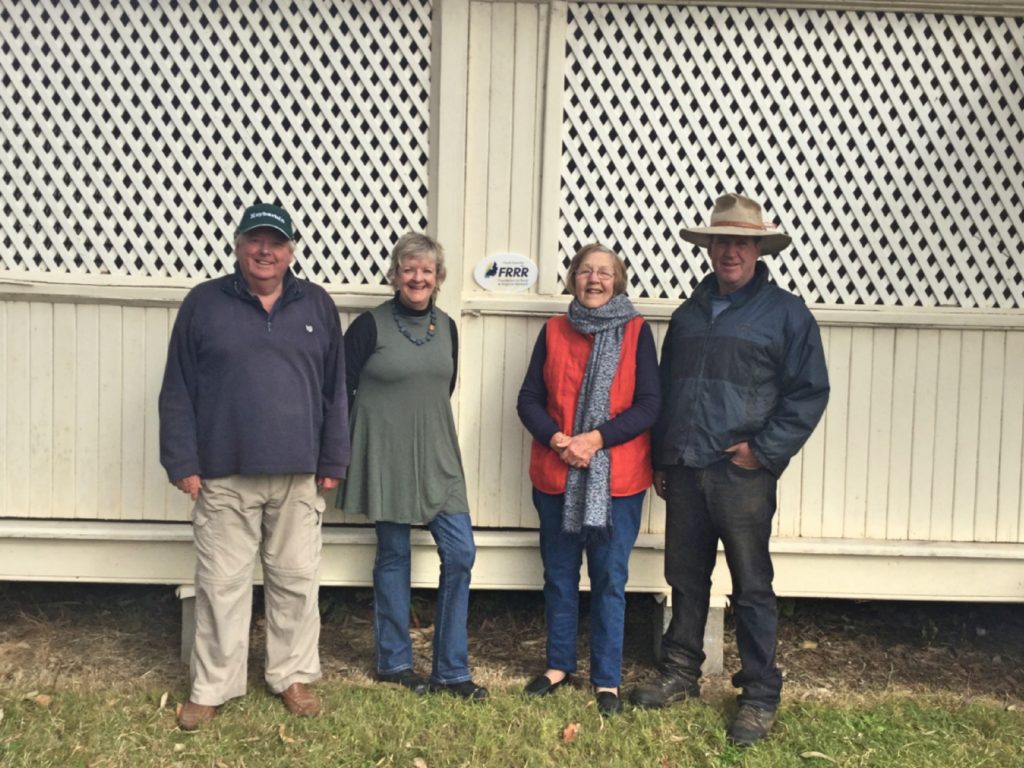
Nestled in the heart of the bush, halfway between Byron Bay and Coffs Harbour in NSW, lies the rural community of Baryulgil.
In the heart of Baryulgil is the Community Hall, located in the town square. The hall has stood for almost 90 years, and been used for social gatherings and fundraisers throughout the years.
With a population of fewer than 100 people, the community hall provides a much-needed place for local residents to gather. In recent years, the hall had fallen into disrepair, with dry rot in the walls, a leaking ceiling and broken windows.
The team at Baryulgil Charity Sports Club applied to FRRR’s Small Grants program, and received a $5,000 grant funded by The Yulgilbar Foundation, to complete maintenance works to ensure the local community could enjoy the hall for many years to come.
This grant enabled the Club to replace the damaged walls, remove dangerous stairways and doors, replace rusted gutters, and purchase heritage-colour paint to restore windows and doors that had been damaged by water.
Along with the popular social events and fundraisers, the hall can now be used by emergency services during bushfires, acting as a local hub for the NSW Rural Fire Service. The bulk of the project was completed in late 2019, with additional work delayed by COVID-19 to be completed in the near future.
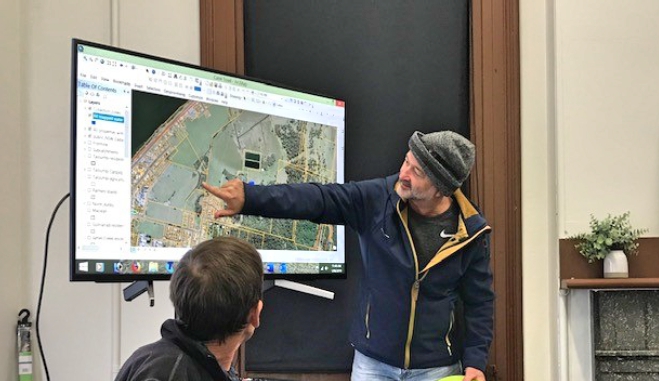
Clarence Landcare is located in regional NSW. Their mission is to promote sustainable land, agriculture, water, vegetation and biodiversity management practices and principles to their local community.
The largely volunteer-run organisation has been taking care of the land in the region for more than two decades. They regularly running community projects and initiatives focused on sustainable land care. The team also hosts workshops at their head office to educate and engage the wider community.
Located in the main street of Grafton, the Clarence Landcare office is in the 100-year-old Dougherty House. After the building was recently repainted giving the exterior of the building new life, it became clear that the interior was in desperate need of an upgrade.
Not only had the furniture been in use for more than 20 years, the team was also lacking basic essentials to help their meetings and workshops run smoothly. There was mismatching furniture and outdated technology made it very difficult for members to join meetings remotely.
The team applied to the FRRR Small Grants for Rural Communities program, and received a $5,000 grant to help them upgrade their workspace. The funding, made possible thanks to The Yulgilbar Foundation, provided improvements such as new blinds, couches, coffee tables, rugs and faux plants, giving new life to the old office.
In addition to the furniture, the funding was also used to purchase some much-needed technology, including a new iPad, Smart TV with a TV stand on wheels, web cam and microphone. This technology has enabled the team to dial into meetings remotely, making it easier for Clarence Landcare staff to stay connected digitally.
“I feel we are heading in a great direction now thanks to this FRRR grant, we don’t need to look like a poverty stricken not-for-profit organisation anymore. We now have the vision and committee support to keep improving our public face of Clarence Landcare. This will really help us gain confidence and attract clientele for future projects. The function of every new piece of equipment has far outweighed the predicted benefits,” said Landcare Officer Debbie Repschlager.
Saddleworth in South Australia is a small rural town with a big heart. With less than 500 people, it’s a tight-knit community where the residents easily walk from one end of town to the next in 20 minutes.
The town has faced some hardships in recent years, making it difficult for locals to access basic recreational sites that larger towns could enjoy easily. With a high number of low-income families living in the area, most without cars, it has become increasingly important to have an accessible and safe playground in Saddleworth for kids to enjoy.
For over 77 years, the Saddleworth Lawn Tennis Club has been providing the town with facilities for sporting events and recreational activities. The Club is located on the Saddleworth War Memorial Community Centre, and honours those who lost their lives in World War II. The Club features the only publically accessible playground in the area, providing play and entertainment for nearby families.
The small playground that was in desperate need of an upgrade, as the equipment was becoming non-compliant, and was at risk of being removed entirely. The playground was also sitting in direct sunlight, making it difficult for kids to enjoy playing on hot days when UV levels were extraordinarily high.
After losing their local supermarket to a fire in 2016, the community was feeling deflated, having lost a major asset to their town. However, when the Club decided to fundraise the amount needed to improve the playground, over 20 volunteers put their hands up to help out, and six local businesses offered their support.
The team applied for the FRRR Small Grants for Rural Communities grant, which provided $5,000 for stage one of the playground upgrade. These funds paid for a new shade cover the playground, that will ensure kids can continue to enjoy the area even on sunny days, and not just the early morning or late afternoons as they had become accustom to.
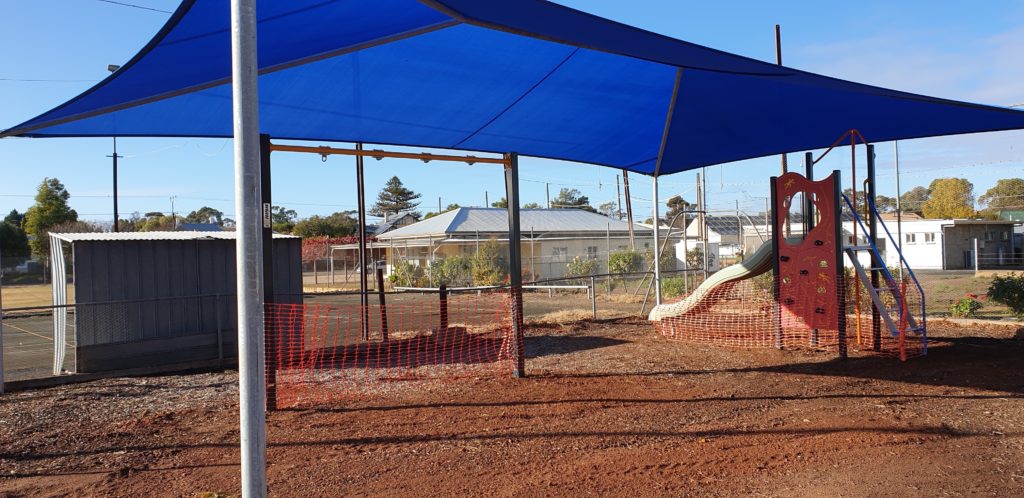
Stage two of the upgrade encompassed replacing some of the equipment on the playground, including a garden border, softfall and bench for families to enjoy, while they sit under the shade sail. The work was carried out by local volunteers. The community can now enjoy their local playground and the newly refurbished facilities.
With summer well under way, the Club has more Junior Teams attending, with more children looking for some entertainment while their siblings play tennis. The new playground is enjoyed by locals and visitors alike, and has created a real impact amongst the community.
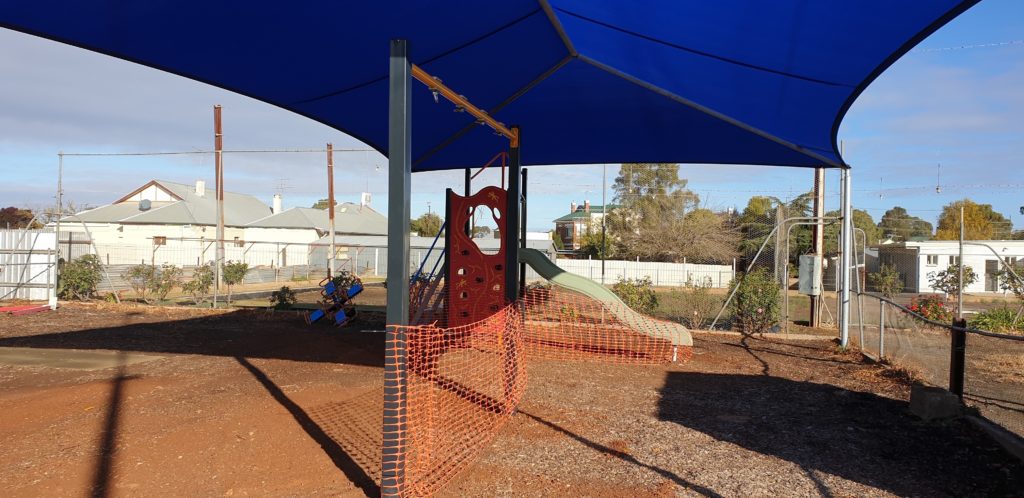
The challenge of attracting volunteers to support charitable organisations serving the community is universal, but exacerbated further in remote communities where the potential pool from which to recruit helpers is that much smaller to start with.
This was the challenge NT Friendship & Support Inc (NTSF) faced when they received a grant from FRRR to help them with their volunteer recruitment drive. The group’s mission is to provide professional care and promote an accessible, inclusive and supportive community.
The organisation has a waiting list of vulnerable Katherine region seniors seeking to be paired with a volunteer to assist them, from attending medical appointments and support services, to simply joining them for a cup of tea and a chat. Community members access the service via a referral from a regional assessment team and to be eligible must be 65 year or older, or 45 years or older for Indigenous community members.
Katherine currently has three aged care facilities, all of which are at capacity, with the only other alternative residential aged care facility located 330 km away in Darwin. NTFS has 25 people on the waiting list, five of whom are a high priority for the service. These identified seniors are at risk of isolation and loss of independence. Research suggests that, whenever possible, it is important that people have the opportunity to remain in their communities, connected to country, and independent as long as possible.
NTFS had hoped to recruit and train ten new volunteers, and used the $4,090 grant from FRRR’s Small Grants for Rural Communities program, funded by The Yulgilbar Foundation, to run an advertising campaign to increase their volunteer numbers. Katherine has a transient population which includes the RAAF base at Tindal, and the town relies on families from Tindal to be able to fill vacancies of volunteer positions.
Sadly, the recruitment drive wasn’t nearly as successful as they were hoping, due largely in part to the low turnover of families at Tindal. Of the initial 13 people who registered their interest in volunteering with NTFS, for various reasons, this translated into only two new volunteers.
Part of the grant was supposed to cover the cost of National Police clearance, Ochre Card Cultural training and First Aid certification for up to ten people (the magic number they were hoping to recruit). NTFS found themselves with surplus funds, so after seeking approval for a variation to their grant agreement, they applied the funding to another of their initiatives, the Seniors Community Bus, to ensure Seniors are supported through the COVID-19 crisis.
With no public transport available in Katherine, this service enables the organisation to support Seniors in getting to and from local services and various medical appointments, unhindered by the cost of high fees on taxis when they are available. The bus adheres to social distancing requirements (5 passengers as a maximum in a 14 seater bus), with rigorous hygiene and disinfection control measures in place.
So while the NTFS team and volunteers are stretched to their limits, they continue to provide valuable and necessary services to marginalised and vulnerable members of their community.
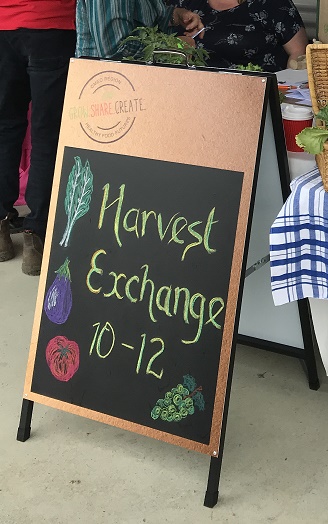
Omeo District Health, centred in the remote Victorian Alps, provides primary health care to the communities of Ensay, Swifts Creek, Omeo, Benambra Dinner Plain and surrounding localities. The region’s cloistered location means that both food security and access to local fresh produce can be an issue for some residents and so, as part of the Omeo Region Building Health Food Futures project, Omeo District Health set up the ‘Healthy Harvest’ produce and information exchange.
‘Healthy Harvest’, with the help of a $4,150 Small Grants for Rural Communities grant, would help build the sustainability of the Harvest Exchange meets throughout the year by providing the equipment and resources to display and promote the harvest goods and project materials. It also builds on the strength of the local community who have a lot of knowledge and skills to share when it comes to the growth and establishment of their own gardens and produce.
Portable tables, sandwich board signs, shelter marquees, seed sticks, and ‘Harvest Host’ aprons were some of the items purchased with the grant with 16 events scheduled throughout the year. Harvest Host volunteers and participants from Ensay, Swifts Creek, Omeo and the Benambra communities all benefited from the new resource.
“It is a fabulous way for the members of the community to meet,” said one of the Harvest Exchange Hosts. “It is very social, and as we all like producing things, there are lots of ideas exchanged and information given.”
The Healthy Harvest produce and information exchange resulted in high engagement with a current base of 138 registered participants. A survey administered in June 2018 indicated high satisfaction with the program and overall positive impacts on social connection and mental health, access to fresh produce and variety, information and produce exchange as well as increased motivation for people to grow their own product to eat and share. It also has had a significant impact on people feeling connected to their community.

